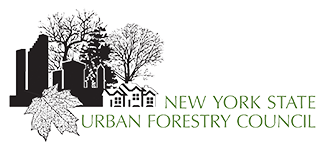Like me, you may have a dog-eared, well-worn copy of the Urban Horticulture Institute’s (UHI) Recommended Urban Trees: Site Assessment and Tree Selection for Stress Tolerance. Another fantastic resource for urban foresters and UF volunteers that has just been updated is the Cornell Woody Plants Database.
Nina Bassuk says, “What makes the site unique is its focus on matching woody plants to site conditions, a feature sometimes lacking on other plant selection sites and a consideration that is sometimes lost in the design and plant selection process.” With its extensive image collection and cultural information, the site is also very useful for woody plant ID and study.
Each entry includes ultimate size and shape, USDA Hardiness Zone, light requirement, salt tolerance, moisture tolerance range, insect and disease considerations, and key ornamental features. Impressively, each entry has Nina voicing a short audio lesson that reinforces ornamental and ID features. Nina says this is a work in progress, as she is re-recording some of the entries for better audio quality.
There is a Course Plant Walk section, which you can use to find a series of plant walks through the beautiful Cornell campus based on different criteria like species (e.g., oaks, maples, and rosaceous and flowering trees) or tolerances (e.g., dry site and wet site trees); click on Maps to see the walk route.
The database was originally the outgrowth of the year-long joint Horticulture/Landscape Architecture (LA) course, “Creating the Urban Eden,” taught by UHI Director Nina Bassuk and Dept of LA Chair Peter Trowbridge.
The site had modest beginnings as an “online textbook” circa 2000. The first version consisted of a FileMaker Pro database running on the Cornell network from a Mac under a desk in the main offices of the Department of Landscape Architecture. Since then, the site has grown significantly more sophisticated with three major revisions that added additional features and functionality. The most recent upgrade was supported by a SUNY Innovative Instruction Technology Grant in 2013.
Check out the Cornell Woody Plants Database!




